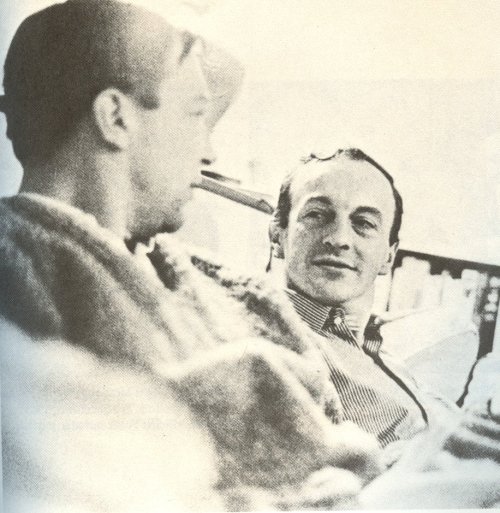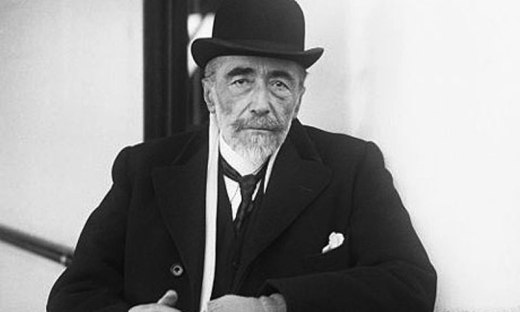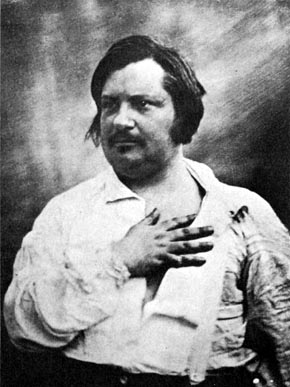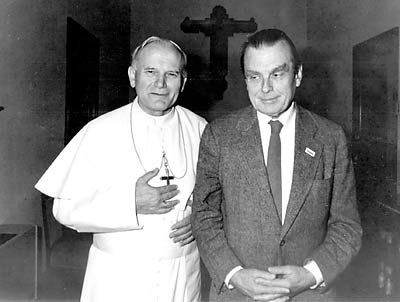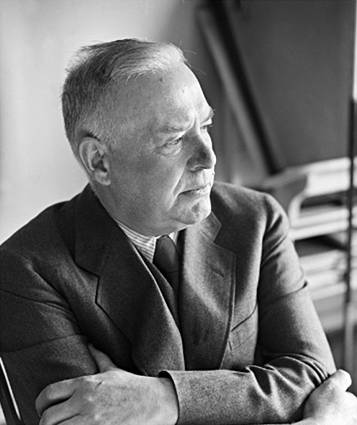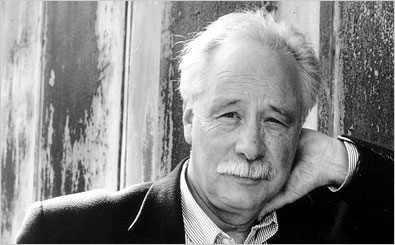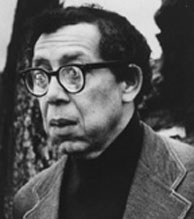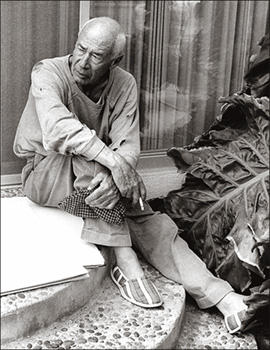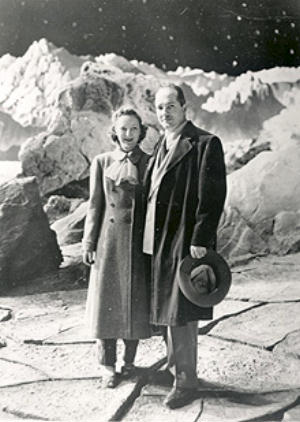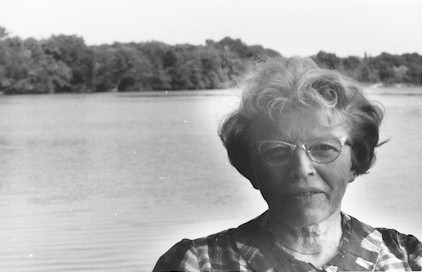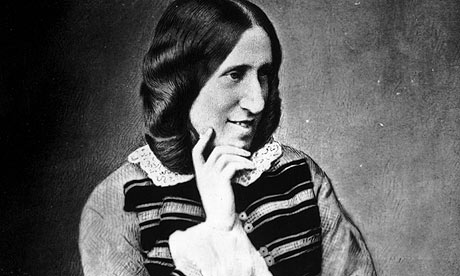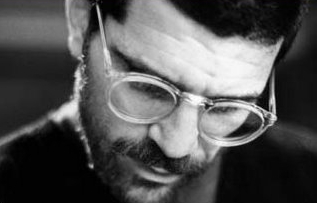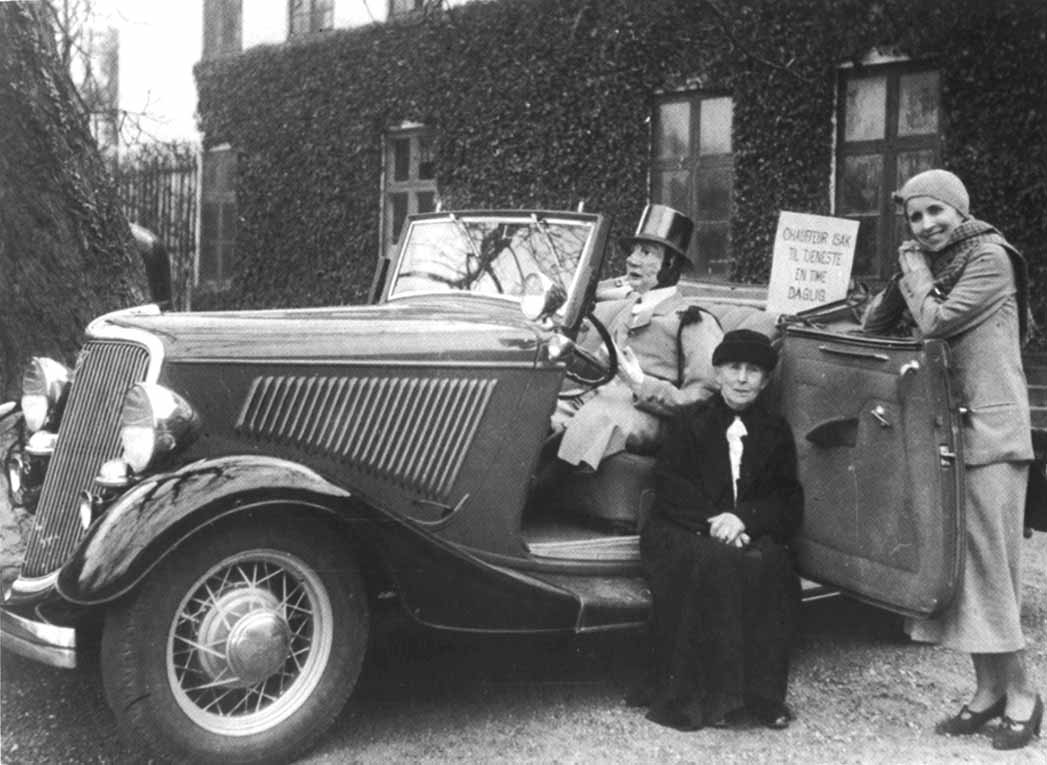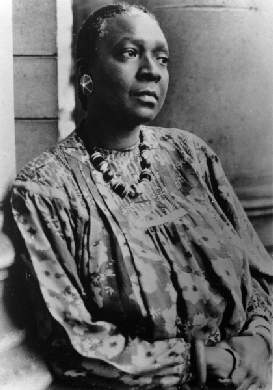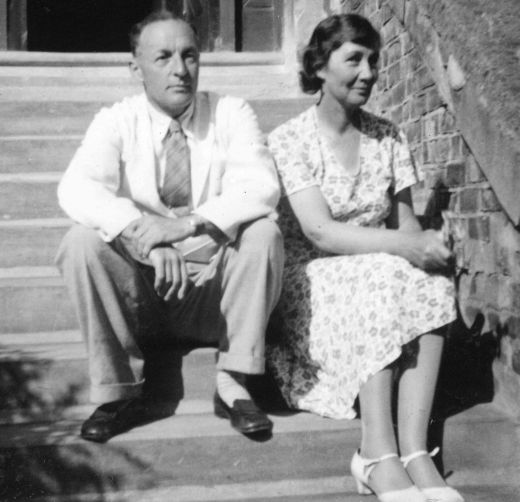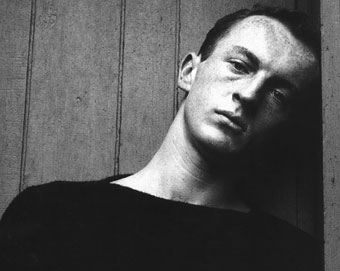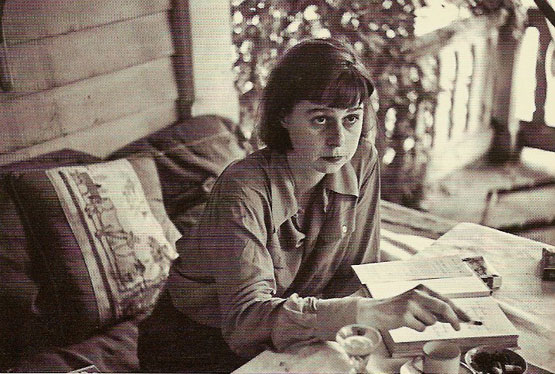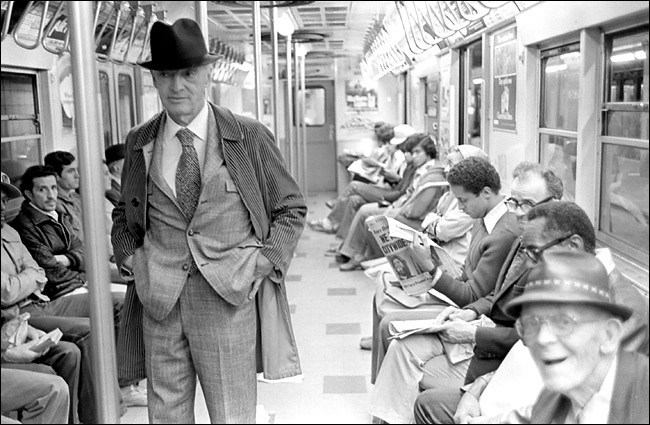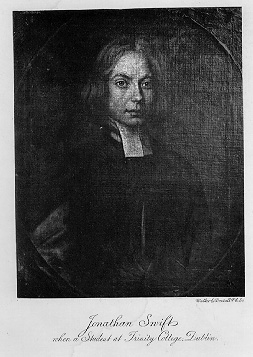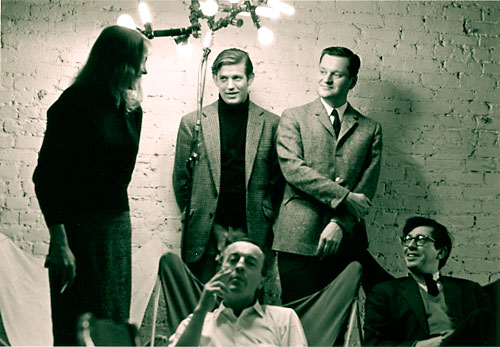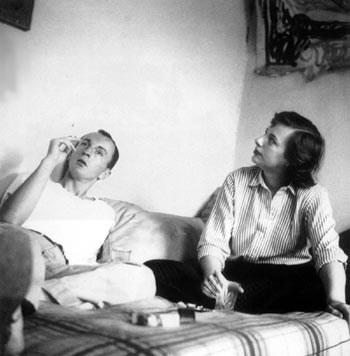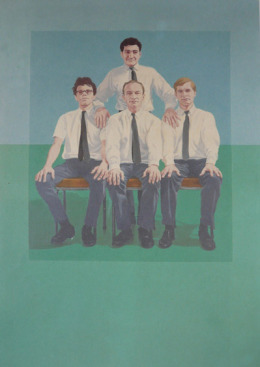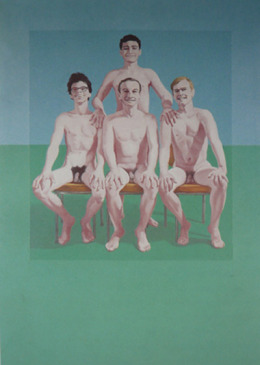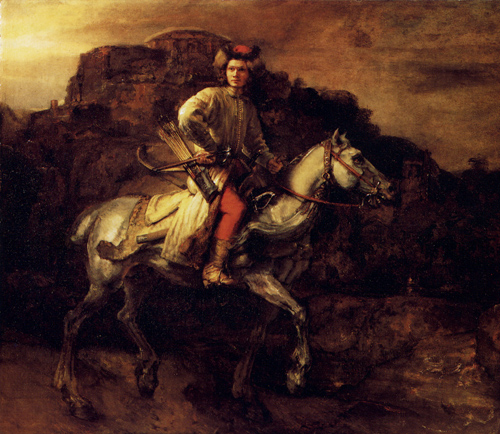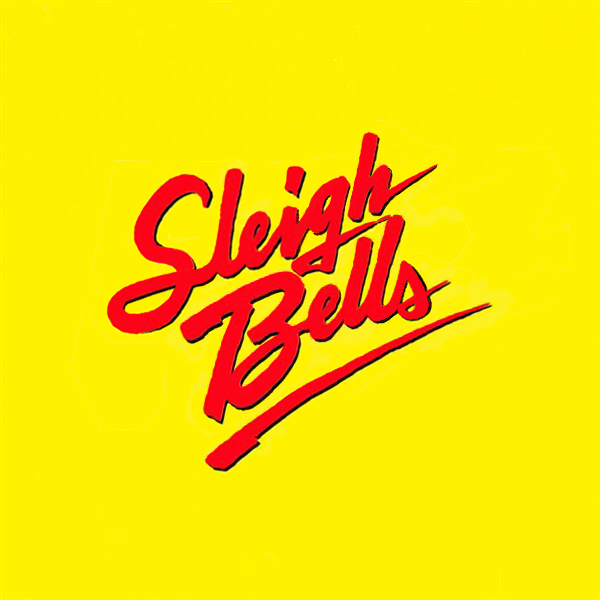 POETRY
POETRY In Which We Collect These Remembrances of Frank O'Hara
 Friday, January 15, 2010 at 12:26PM
Friday, January 15, 2010 at 12:26PM The following remembrances of Frank O'Hara appear in Homage to Frank O'Hara, edited by Joe LeSueur and Bill Berkson. You can purchase that volume here.
 may 2nd, 1964Memories of Frank
may 2nd, 1964Memories of Frank
 with grace hartigan Larry Rivers
with grace hartigan Larry Rivers
I began doing portraits of Frank in the fall of '52. That was after I'd slit my wrists over something. I phoned Frank, who happened to be in, and he came over and bandaged me up. Then we began seeing a lot more of each other and it was natural for me to use him as a model. Sex we got into later, when I'd already started drawing and painting him. There was always a dialogue going on during our working sessions. He gave me feedback and made me feel like what I was doing mattered, and after a while I found I needed him for my work. He was a great model. For one thing, he liked to model; he even felt complimented that you asked him to, and you ended up wanting him to like you. He had blazing blue eyes, so if you were stuck you could always put a little blue to make the work more interesting. His widow's peak gave you a place to anchor the picture, and his broken nose was dramatic and easy to get. At the time, I had no idea I was making so many pictures of him; I think I must have made a dozen portraits, and that's not counting drawings or paintings like "The Studio" and "Athlete's Dream" he appeared in. I always felt I was close to getting him but I never did, so I kept on trying.
 in front of larry rivers' house in southamptonTed Berrigan
in front of larry rivers' house in southamptonTed Berrigan
Frank O'Hara
Winter in the country, Southampton, pale horse
as the soot rises, then settles, over the pictures
The birds that were singing this morning have shut up
I thought I saw a couple, kissing, but Larry said no
It's a strange bird. He should know. & I think now
"Grandmother divided by monkey equals outer space." Ron
put me in that picture. In another picture, a good-
looking poet is thinking it over; nevertheless, he will
never speak of that it. But, his face is open, his eyes
are clear, and, leaning lightly on an elbow, fist below
his ear, he will never be less than perfectly frank,
listening, completely interested in whatever there may
be to hear. Attentive to me alone here. Between friends,
nothing would seem stranger to me than true intimacy.
What seems genuine, truly real, is thinking of you, how
that makes me feel. You are dead. And you'll never
write again about the country, that's true.
But the people in the sky really love
to have dinner & to talk a walk with you.
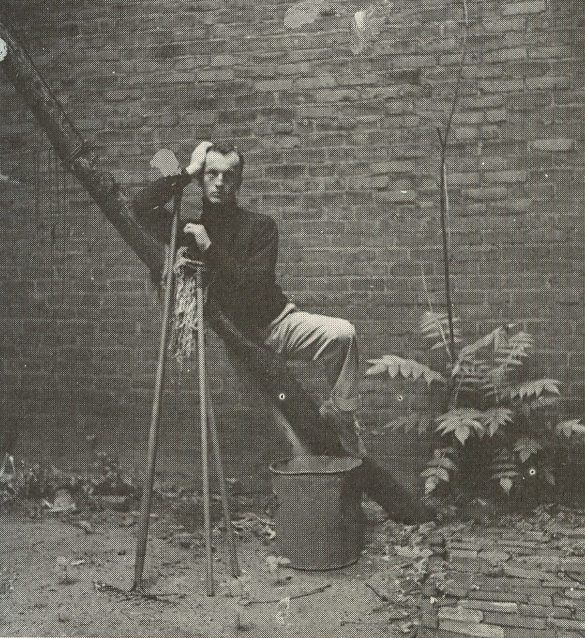 cambridge 1950 by jane freilicher Jane Freilicher
cambridge 1950 by jane freilicher Jane Freilicher
It is really a sketch painted from memory as he appeared characteristically in those days (1950, or 51) with his dark fuzzy shetland sweater, no shirt, chino pants & tennis shoes - Ivy League but rather exotic & chic in the N.Y. art world in those days. Frank was very well put together physically, the scale of his body, the delicate but irregular features of his face remind somewhat of the drawings of ideal male proportions by Dürer. He was so very pleasing to look at & I sometimes wonder if this attractiveness was one of the reasons so many painters enjoyed knowing him.
However, my painting was just an attempt to capture a fleeting sense of his physical presence as he seemed, often, to be standing in a doorway of a room, one arm bent up at the elbow, his weight poised on the balls of his feet, maybe saying something funny or charming, proffering a drink or listening attentively, alert & delightful.

Anne Waldman
April Dream
I'm with Frank O'Hara, Kenward Elmslie & Kenneth Koch visiting Donald Hall's studio or lab (live ivy league fraternity digs) in "Old Ann Arbor." Lots of drink and chit chat about latest long poems & how do we all rate with Shakespeare. Don is taking himself very seriously & nervously as grand host conducting us about the place. It's sort of a class reunion atmosphere, campus history (Harvard) & business to be discussed. German mugs, wooden knick knacks, prints, postcards decorate the room, Kenward making snappy cracks to me about every little detial. We notice huge panels of Frank O'Hara poems on several walls and Kenneth reads aloud: "a child means BONG" from Biotherm. We notice more panels with O'Hara works, white on red - very prettily shellacked - translated by Ted Berrigan. Slogan-like lines, "THERE'S NOBODY AT THE CONTROLS!" "NO MORE DYING." Frank is very modest about this and not altogether present (ghost). Then Don unveils a huge series of panels again printed on wood that's he's collecting for a huge anthology for which Frank O'Hara is writing the catalogue. Seems to be copies of Old Master, plus Cubists, Abstract Expressionists, Joe Brainards & George Schneeman nudes. Frank has already compiled the list or "key" but we're all supposed to guess what the "source" of each one is like a parlour game. The panels are hinged & like a scroll covered with soft copper which peels back.
 I wonder what I am doing with this crowd of older men playing a guessing game. None of us are guessing properly the "sources," Kenneth the most agitated about this.
I wonder what I am doing with this crowd of older men playing a guessing game. None of us are guessing properly the "sources," Kenneth the most agitated about this.
Then the "key" is revealed and the first 2 on it are:
I. Du Boucheron
II. Jean du Jeanne Jeanne le (wine glass)
"I knew it! I knew it!" shouts Kenneth.
We are abruptly distracted from the game by children chorusing, "da da da du DA LA" over & over again, very guileless & sweet. We all go to a large bay window which looks over a gradeschool courtyard. Frank says, "Our youth."
April 17, 1977
 with elaine de kooningTerry Southern
with elaine de kooningTerry Southern
Once I asked Larry Rivers about Frank's closest friends, who did he think was Frank's best friend, and so on.
"Oh my God," he said, "there were so many people who thought they were his best friend. I mean, he had this thing about making each person feel he was his best friend. I guess it was because he cared so much, about everybody."
Yes, I guess it was. Anyway, I know there are people who were better acquainted with Frank than I, but I'm certain there are none who enjoyed him more fully, think of him more often, or more fondly.
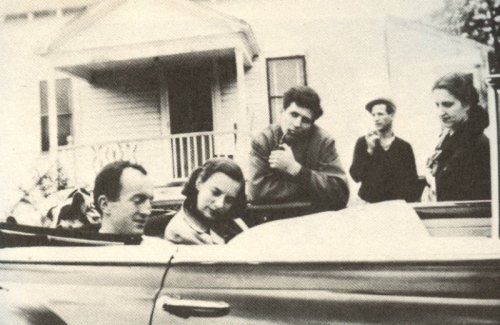 john ashbery’s photograph of frank o’hara, grace hartigan, allan kaprow, joe hazan, jane freilicher at george segal’s house in New Jersey, 1955Barbara Guest
john ashbery’s photograph of frank o’hara, grace hartigan, allan kaprow, joe hazan, jane freilicher at george segal’s house in New Jersey, 1955Barbara Guest
Frank and I happened to be in Paris at the same time in the summer of 1960. I was staying there with my family and had been very busy with the Guide Bleu looking at every placard on every building I could find. and I had located the"bateau lavoir" where Picasso and Max Jacob had first lived and where they had held all those studio parties with Apollinaire and Marie Laurencin. And across the street was a very good restaurant. I suggested that we have lunch there, our party included Grace Hartigan and her husband at the time, Robert Keene. We had a "marvelous" lunch, much wine and talk and we all congratulated ourselves on being in Paris and moreover being in Paris at the same time - a continuation of the Cedar St. Bar where we had formerly and consistently gathered. After lunch I suggested that we cross the street to the "bateau lavoir," a discovery of mine and one I thought would intrigue Frank. Not at all. He did go across the street, but he didn't bother to go into the building. "Barbara," he said, "that was their history and it doesn't interest me. What does interest me is ours, and we're making it now."
You can purchase Homage to Frank O'Hara here.
 with allen ginsberg"Why I Am Not A Painter" - Frank O'Hara (mp3)
with allen ginsberg"Why I Am Not A Painter" - Frank O'Hara (mp3)
"Ave Maria" - Frank O'Hara (mp3)
"Having a Coke With You" - Frank O'Hara (mp3)
"Poem/Poem" - Frank O'Hara (mp3)
